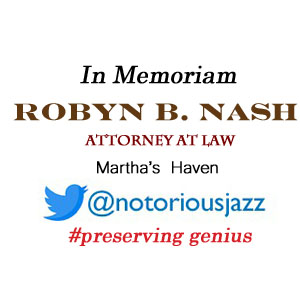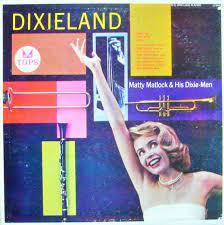
Daily Dose Of Jazz…
Julian Clifton Matlock was born on April 27, 1907 in Paducah, Kentucky and raised in Nashville from the age of ten. He began playing clarinet when he was 12.
From 1929 to 1934, Matlock replaced Benny Goodman in the Ben Pollack band doing arrangements and performing on clarinet. He was one of the main arrangers for Bob Crosby’s band and joined Crosby’s group in 1935 as clarinettist, playing with both the main Crosby band and the smaller Bobcats group. However, he was often seconded to write full-time for the orchestra and the Bobcats. He stayed with Crosby until the band broke up in 1942.
After the dissolution of Crosby’s group, Matty worked in Los Angeles, California playing for recordings made by a variety of Dixieland groups. In 1955, he appeared in the film Pete Kelly’s Blues, playing clarinet for a band that is seen in a scene in a Kansas City speakeasy in 1927. He would go on to play with Bing Crosby, Ella Fitzgerald, Ray Heindorf, Ben Pollack and Beverly Jenkins.
Dixieland clarinettist, saxophonist and arranger Matty Matlock, who recorded three albums as a leader, passed away on June 14, 1978 in Los Angeles, California.
More Posts: arranger,bandleader,clarinet,history,instrumental,jazz,music,saxophone
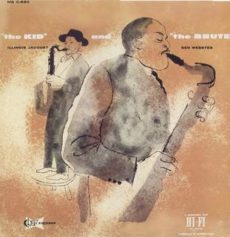
Daily Dose Of Jazz…
Rick Henderson was born on April 25, 1928 in Washington, D.C. and studied composition as a high schooler and played locally in the late 1940s. He served in the Army from 1951 to 1953, then joined Duke Ellington’s Orchestra after being recommended by Clark Terry.
He played with Ellington during his years on Capitol Records, doing arrangements in addition to his duties as a player. He also composed tunes such as Carney for the Ellington band. After leaving Ellington’s employ in 1956, Rick returned to D.C. where he led the Howard Theatre’s house band until 1964.
Following this he worked as an arranger and composer for jazz orchestras, military bands and school ensembles. Among those who used his charts, in addition to Ellington, were Count Basie, Illinois Jacquet, and Billy Taylor. Henderson continued to lead bands into the 1990s, including the University of Maryland Jazz Ensemble from 1977 to 1978.
Saxophonist and arranger Rick Henderson passed away from arteriosclerotic cardiovascular disease on May 21, 2004.
More Posts: arranger,bandleader,history,instrumental,jazz,music,saxophone
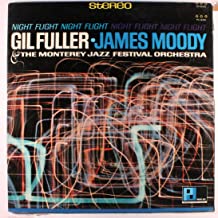
Daily Dose Of Jazz…
Gil Fuller was born Walter Gilbert on April 14, 1920 in Los Angeles, California. In the 1930s and 1940s, Fuller did extensive work writing and arranging for bandleaders such as Les Hite, Floyd Ray, Jimmie Lunceford, Billy Eckstine, and Tiny Bradshaw. He also worked with Benny Carter, Benny Goodman, Woody Herman, Count Basie, Machito, and Tito Puente.
Post World War II, he found himself increasingly in demand as a bebop arranger along with fellow modern arrangers Tadd Dameron, Gil Evans, and George Russell. Fuller’s work with Dizzy Gillespie was of particular note, yielding the tunes Manteca, Swedish Suite, Tin Tin Deo, and One Bass Hit. He is the composer of the jazz standard ballad I Waited For You, co-credited with Dizzy Gillespie.
Starting his own publishing company in 1957, he continued to work with some jazz musicians including Stan Kenton in 1955 and again during the 1960s. Gil also branched out into film music and pop with Ray Charles, among others. Arranger Gil Fuller passed away on May 26, 1994 in San Diego, California.
More Posts: arranger,history,instrumental,jazz,music
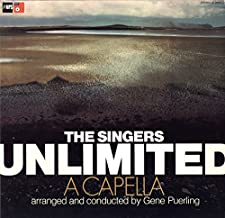
Daily Dose Of Jazz…
Eugene Thomas Puerling was born on March 31, 1929 in Milwaukee, Wisconsin. He created and led the vocal groups The Hi-Lo’s and The Singers Unlimited. He won a Grammy Award for Best Vocal Arrangement for Two or More Voices in 1982 for his arrangement of A Nightingale Sang in Berkeley Square as performed by The Manhattan Transfer. A Latin song he arranged for Singers Unlimited, “One More Time, Chuck Corea,” inspired by Chuck Mangione and Chick Corea, has been adapted and used by marching bands, drum and bugle corps and jazz ensembles.
His vocal arrangements and chord structures were classic and instantly recognizable. In addition to the afore-mentioned he contributed to Rosemary Clooney’s TV show. His vocal arranging ability and his ability to arrange musical backing by Frank Comstock’s band and several others were widely regarded. Puerling’s innovative use of vocal harmony influenced many groups and musicians, including Take 6, The King’s Singers, The Free Design, Brian Wilson, The Manhattan Transfer, Chanticleer, and the band Glad, the latter three also commissioned him to create original arrangements for them.
Vocalist and vocal arranger Gene Puerling, whose vocal arrangements collection is being housed at The University of North Texas College of Music and Music Library, passed away on March 25, 2008.
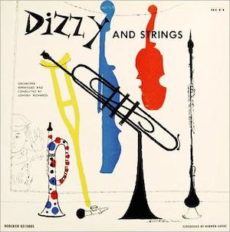
Daily Dose Of Jazz…
Lavere “Buster” Harding was born on March 19, 1917 to Benjamin and Ada Harding in North Buxton, Ontario, Canada. Raised in Cleveland, Ohio as a teenager he started on his own band.
In 1939 Buster went to work for the Teddy Wilson big band, and then in the early 1940s joined the Coleman Hawkins band. This was followed by his playing with Cab Calloway. He became a freelance arranger and worked with Benny Goodman, Artie Shaw, Roy Eldridge, Dizzy Gillespie, and Count Basie, among others.
In 1949 he became the musical director for Billie Holiday recording sessions. In the early 1960s Harding played with Jonah Jones, though he was known primarily as an arranger and composer.
Pianist, composer and arranger Buster Harding, who never recorded as a leader, passed away on November 14, 1965, in New York City.
More Posts: arranger,composer,history,instrumental,jazz,music,piano


